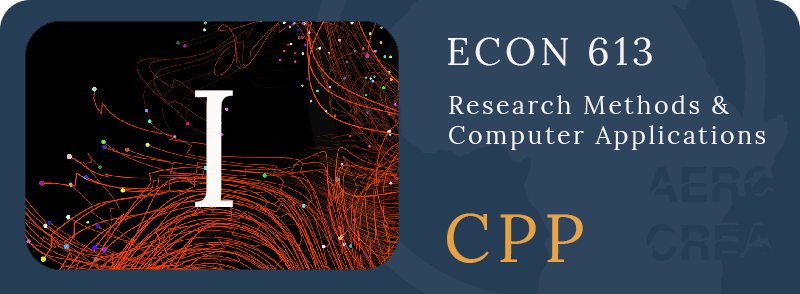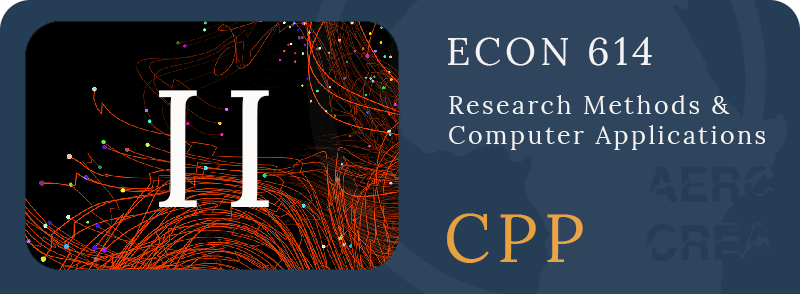
Research Methods and Computer Applications l
Objectives
The main objective of the course is to ensure that students have the required skills in the following
key areas:
• Formulating a research problem and presentation skills.
• Data storage, access, retrieval and compilation, data base management and analysis.
• Hypothesis formulation and testing.
• Making a choice on the analytical techniques.
• Econometric analysis and tools including times series analysis, cross-section and panel data
analysis, inference, results interpretation and report writing.
• Building models analytically based on core conceptual frameworks and compelling
justifications (e.g. does Engel law hold in developing economies?)
• Choice of the relevant analytical/econometric techniques
• Developing conclusions that are in line with the research questions and where policy
suggestions from the emerging evidence can be synthesized
• Working on key pillars of research proposals for diverse purposes.

Research Methods and Computer Applications ll
Objectives
The main objective of the course is to ensure that students have the required skills in the following
key areas:
• Formulating a research problem and presentation skills.
• Data storage, access, retrieval and compilation, data base management and analysis.
• Hypothesis formulation and testing.
• Making a choice on the analytical techniques.
• Econometric analysis and tools including times series analysis, cross-section and panel data
analysis, inference, results interpretation and report writing.
• Building models analytically based on core conceptual frameworks and compelling
justifications (e.g. does Engel law hold in developing economies?)
• Choice of the relevant analytical/econometric techniques
• Developing conclusions that are in line with the research questions and where policy
suggestions from the emerging evidence can be synthesized
• Working on key pillars of research proposals for diverse purposes.